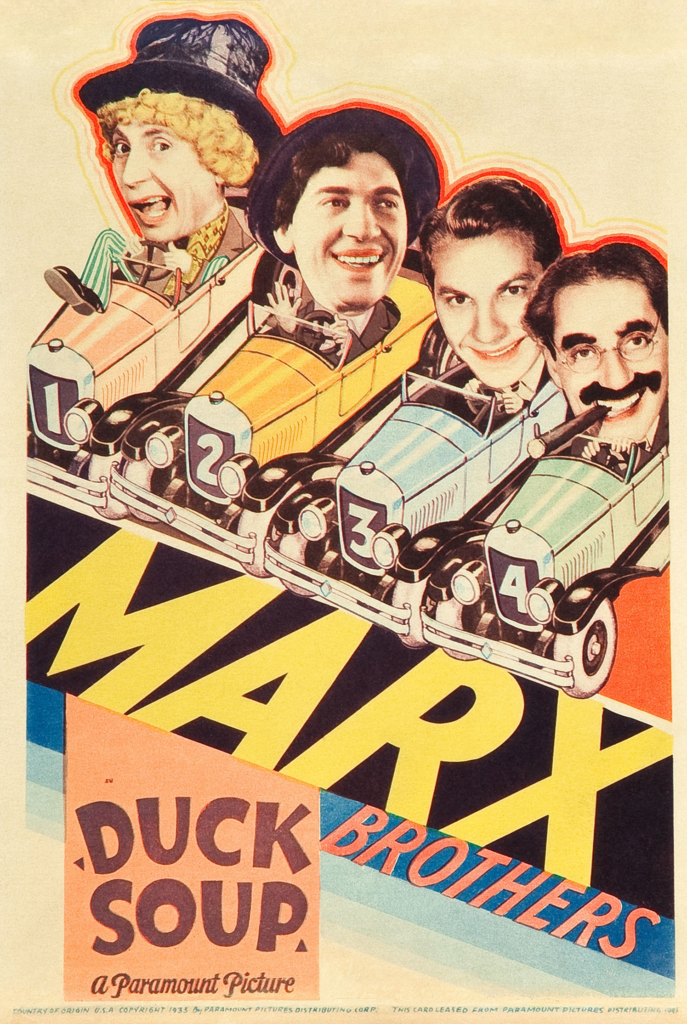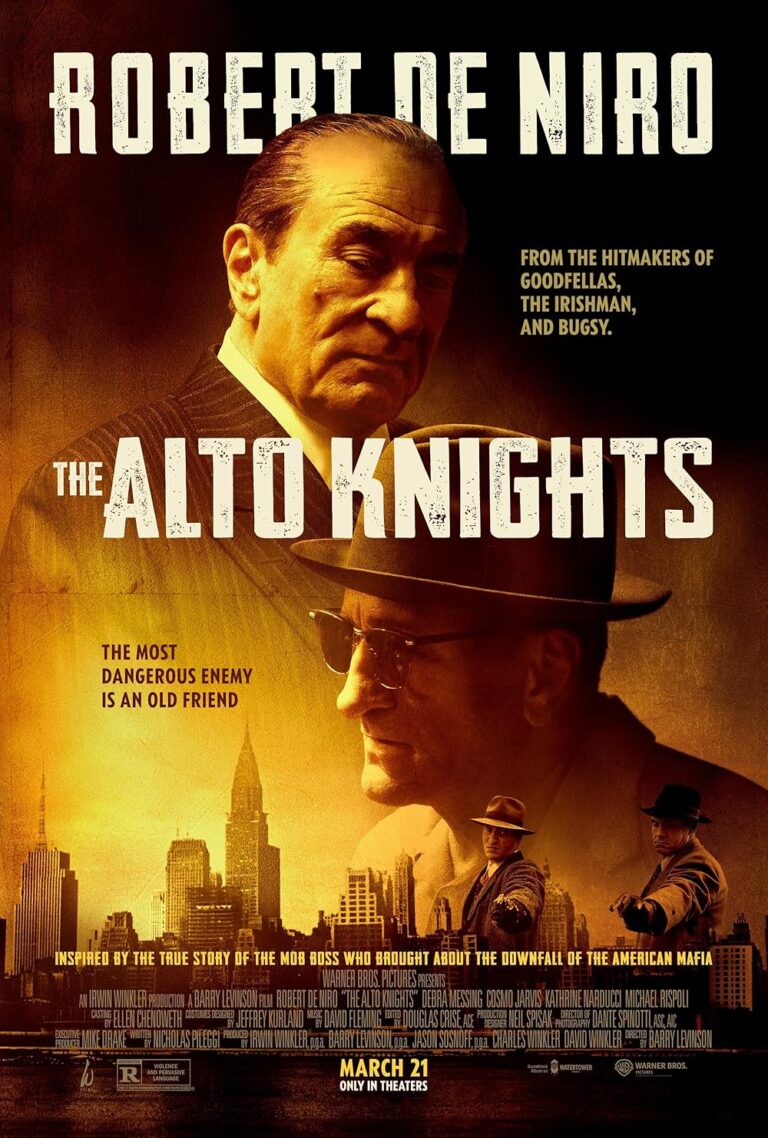Duck Soup Christian Review

Let’s just say it: Duck Soup is a mess — a brilliant, chaotic, nonsensical mess that wraps its insanity around the viewer like a circus tent spun in a tornado. There’s really no way to describe this film by the Marx Brothers without admitting that it seems, at first glance, to be a complete and utter farce. But that’s the beauty of it. Beneath the dizzying chaos, behind Groucho’s rapid-fire insults, Chico’s thick-as-cement accent, and Harpo’s silent absurdity, lies a biting critique of the world’s most ridiculous power plays. Imagine being thrown into a blender of slapstick anarchy, where every dignified institution is upended and mocked — and you’re just trying to catch your breath between the fits of laughter.
War and Peace: Redefined Through Absurdity
War movies. They’re typically about heroes and martyrs, about bravery and heartbreak, right? But here, in this zany land of Freedonia, all those serious tropes are tossed out the window. Duck Soup approaches war not with somber music and tear-jerking moments, but with pure, unfiltered lunacy. It turns everything you know about wartime narratives upside down and dumps a bucket of slapstick gags on top for good measure.
The plot — if you can call it that — is simple. Groucho’s character, the wonderfully named Rufus T. Firefly, becomes the leader of the bankrupt nation of Freedonia. Why? Because why not? The country is so desperate, they figure a clown might be as good a leader as anyone else. This sets the stage for Groucho to run rampant through the halls of power, mocking every political convention imaginable. He’s arrogant, selfish, and utterly incompetent, yet somehow still magnetic. The genius is in the absurdity itself: how does such a buffoon rise to power? And why do people follow him? But then again, isn’t that a question we’re sometimes still asking ourselves today?
What’s So Funny About War?
It’s not like the film treats war lightly — it’s just that it doesn’t treat it seriously, either. The Marx Brothers’ comedy turns battles into silly pantomimes and strategy sessions into gibberish. The film’s most famous sequence, the mirror scene, is pure visual brilliance. Harpo, dressed exactly like Groucho, mimes every move his brother makes, creating a surreal dance of confusion and mimicry. They’re playing at war, pretending to be each other, taking themselves oh-so-seriously — and yet it’s all a meaningless game. Isn’t that, in some ways, the nature of real-life political disputes? People play their roles, make their threats, and puff up their chests, all the while reflecting the same insecurities back at one another.
And let’s not forget: Duck Soup was made in 1933. Think about the world in 1933 — on the brink of catastrophe, with dictators rising to power and nations teetering toward war. This isn’t just an exercise in slapstick. It’s a bold, subversive critique of leaders who treat lives like chess pieces, who stoke conflict for pride’s sake, and who lead nations to war without a thought for the human cost. Through the absurdity, there’s a sobering reminder: war is ridiculous, senseless, and cruel — and Duck Soup laughs in its face.
Breaking the Rules of Comedy (And Everything Else)
One of the reasons Duck Soup has such staying power is because it doesn’t play by the rules. Watch any classic comedy from the same era, and you’ll see a pretty predictable setup. A straight man, a funny man. A love story, a misunderstanding. But the Marx Brothers? They blow it all up. There’s no romantic subplot, no moralizing ending, no redemption arc. It’s just relentless, anarchic gags, one after the other, like a machine gun spitting out punchlines. The effect is dizzying. You’re not just watching a film — you’re getting yanked through it, barely able to keep up.
The dialogue crackles and pops with Groucho’s trademark wit. “I could dance with you till the cows come home. Better still, I’ll dance with the cows and you come home,” he quips. It’s nonsensical, rapid-fire, and utterly infectious. Chico and Harpo, meanwhile, serve up pure physical comedy. Harpo’s antics — chasing women, honking horns, and causing mayhem — are childlike in their glee. Chico’s interactions, full of sly wordplay, feel almost like puzzles you have to solve. Why is this so funny? Why are we laughing? But that’s just it: Duck Soup isn’t about making sense. It’s about embracing the nonsensical, the chaotic, and the unbridled joy of it all.
Laughter as a Weapon Against Tyranny
And yet, for all the insanity, Duck Soup carries a surprising weight. There’s something profound about the way it uses humor to deflate egos and puncture pretensions. No one is safe from the Marx Brothers’ ridicule — not the politicians, not the diplomats, not even the military. They tear down every institution they touch, leaving nothing but shambles in their wake. It’s easy to dismiss it as silliness, but look closer, and you’ll see something more.
In a world that so often takes itself too seriously, that wraps itself in the grandeur of power and prestige, Duck Soup is a breath of fresh air. It’s the court jester daring to mock the king. And for Christians, there’s a lesson here: pride is a dangerous thing. The Bible warns us time and again about the perils of arrogance and self-importance. “Pride goes before destruction, a haughty spirit before a fall,” Proverbs 16:18 tells us. The Marx Brothers understood this intuitively. By making us laugh at the pompous, the arrogant, and the self-deluded, they remind us of the humility we’re called to embody.
A Film for the Ages (and a Few More Laughs Along the Way)
It’s no wonder that Duck Soup is still considered one of the greatest comedies of all time. There’s something timeless about it, something that transcends the specifics of the era in which it was made. Even today, in a world that’s changed so much, the humor still resonates. We still have leaders who seem like caricatures, conflicts that make no sense, and institutions that deserve to be skewered. And Duck Soup is there to remind us not to take it all too seriously.
But don’t mistake this for cynicism. At its heart, Duck Soup is a joyful film, full of life and energy. It’s a celebration of the human spirit’s capacity to laugh in the face of absurdity. And for all its chaos, there’s a kind of order to it, a method to the madness. It’s the Marx Brothers at their very best, doing what they do best — turning the world upside down and making us see it in a new light.
Final Verdict: 9 out of 10
So, what’s the final word on Duck Soup? It’s not just a great comedy — it’s a masterpiece. A film that makes you laugh till your sides ache, but also leaves you thinking long after the credits roll. There’s no other movie quite like it, and for that reason alone, it deserves a place at the top. I’d give it a solid 9 out of 10. Not perfect — what film is? — but close. It’s a movie that stands the test of time because it dares to be bold, to be ridiculous, and to remind us all that sometimes, the best way to fight the madness of the world is to embrace a little madness of our own.





